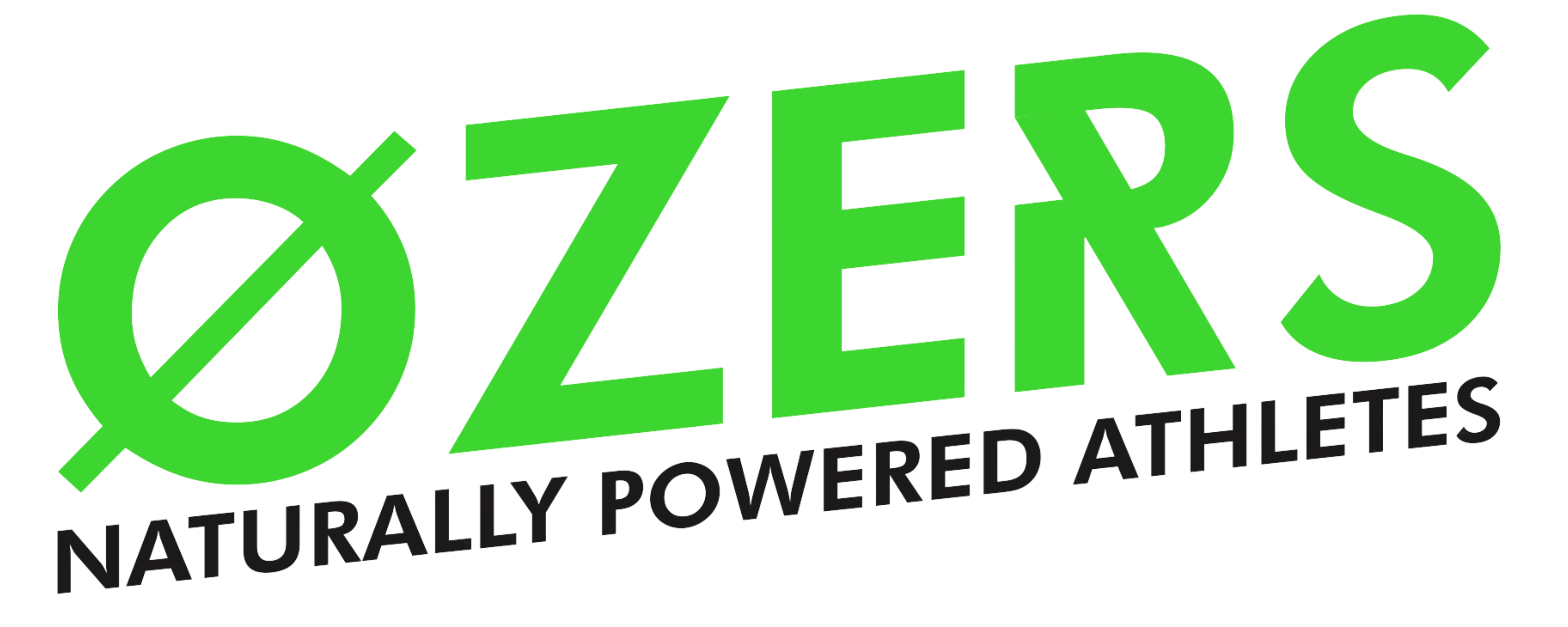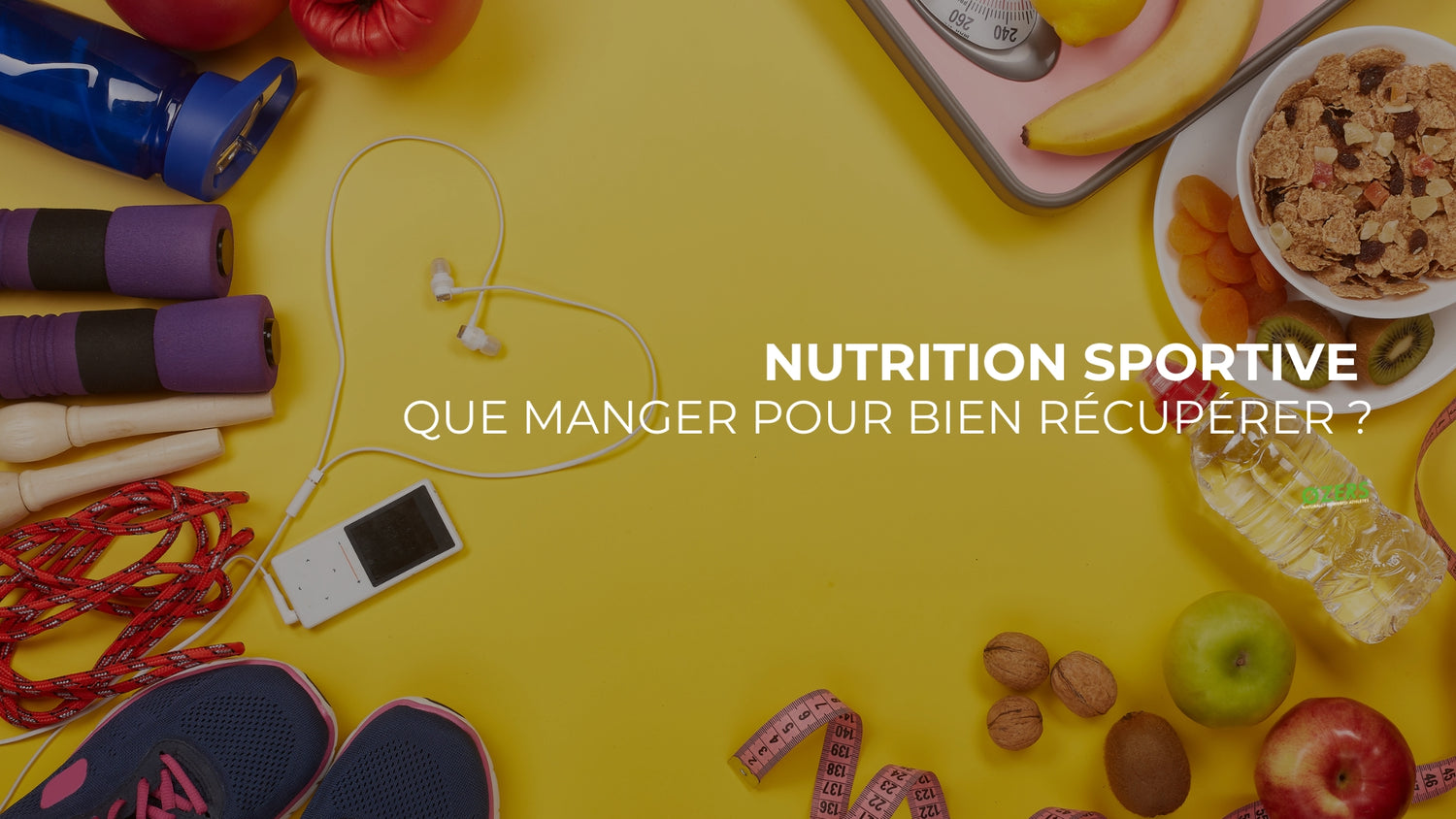CONTENTS
Why is sports nutrition important?
What foods to eat to recover well after sport?
Eat foods rich in carbohydrates after exercise
Foods rich in protein
Foods rich in antioxidants
Foods rich in omega 3
Don't forget to drink water to recover well!
What foods to avoid after sports training?
What is the ideal meal to cook after sports?
Conclusion: the keys to sports nutrition to recover well
Why is sports nutrition important?
We don't teach you anything: diet is the key to optimizing your physical and sporting performance.
Eating well means adopting healthy eating habits , with balanced meals that offer a good nutritional intake.
Eat fruits, vegetables, oilseeds, proteins... All these nutrients are essential for creating energy , continuing to play sports, but also building muscle mass .
After a sports session, sports nutrition allows you to:
- restock the energy spent during the training session;
- stock up on glycogen (carbohydrate present in the liver and muscles);
- compensate for liquid and mineral losses from perspiration and sweating;
- improve sports recovery and progress in your practice;
- repair and build muscle fibers (especially with proteins);
- strengthen your immune system .
In short, don't neglect the ingredients on your plate. Particularly after sport, adopt a post-workout diet that is nutritious and beneficial for your bodybuilding.
>> Discover ØZERS plant protein post workouts rich in proteins and nutrients to improve your sports recovery.
What foods to eat to recover well after sport?
To recover well after sport, eat foods rich in carbohydrates, proteins, vitamins and drink drinks rich in mineral salts.
The goal is to compensate for water and caloric losses from the sports session.
Sports nutrition allows you to recover well to get maximum benefits from your physical and sporting efforts during training.
|
Good to know : It is advisable to wait 2 hours after physical exertion to eat. During this period of time, called the metabolic window, your body seeks to replenish its energy reserves as quickly as possible. Enzymatic activity increases and allows glucose to be stored and proteins to be produced in the muscles. |
Eat foods rich in carbohydrates after exercise
The sooner carbohydrate consumption occurs after a training session, the higher the quantity of glycogen synthesized.
In other words, if you need to recover quickly after exercise , you must replenish your glycogen stock by eating foods rich in carbohydrates. The faster you need to recover, the higher the glycemic index the carbohydrates should have.
Here are 4 examples of sources of carbohydrates in food:
- cereals , preferably whole grains (whole rice, pasta, oats, wheat);
- legumes (lentils, beans, peas, chickpeas);
- vegetables (potato, sweet potato, pumpkin);
- fruits (banana, apple, lemon).
Favor starchy foods which are foods of plant origin rich in carbohydrates. Potatoes and legumes are part of this, as are grain foods.
|
Did you know ? Starchy foods represent up to 50% of total calories. Their nutritional richness, particularly in carbohydrates and proteins, plays a role in building muscle mass and helps with good recovery after physical activity. |
Complex carbohydrates are better for sports recovery than simple carbohydrates. The latter are fast sugars (white sugar, cakes and other processed products) quickly eliminated by the body and which are not enough to recover after an effort.
Foods rich in protein
Proteins represent the essential part of sports nutrition, especially if you want to improve your performance and strengthen your muscles.
Eating protein after sport helps rebuild muscle and promote its growth, in particular thanks to the amino acids that make up the protein.
You have the choice between plant proteins and proteins of animal origin.
Note that consuming plant proteins is better for your health in the long term. It is less acidifying and is part of a balanced and natural diet (and better for the environment).
>> Discover the 7 advantages of plant protein over (animal) milk protein
Here are 4 examples of plant protein sources:
- legumes (lentils, beans, soya, peas);
- oilseeds and seeds (walnuts, hazelnuts, almonds, squash, peanuts, hemp, fenugreek, chia);
- algae (spirulina, which offers the highest protein content in the world, chlorella);
- cereals (corn, rice, spelt, quinoa, buckwheat, oat bran).
Plant proteins are suitable for all sportspeople and athletes who follow a vegan, vegetarian or plant-based diet and are looking to replace meat.
You don't necessarily need to eat meat, eggs, dairy, or poultry to get a good protein intake . Plant protein sources are everywhere in nature.

Foods rich in antioxidants
Antioxidants fight against the oxidation of muscle cells and against free radicals. These are responsible for cellular aging. They attack the body's tissues and degrade molecules essential to muscle building... Like proteins, lipids, etc.
This phenomenon is called oxidative stress .
Additionally, oxygen consumption during physical exercise increases the production of free radicals.
Consuming foods rich in antioxidants counter the degenerative effects of oxidative stress and helps you recover well after a sports session, but also to sustainably optimize your sporting performance.
Here are the 4 forms of antioxidants in food:
- B-carotene or provitamin A (carrot, apricot, pepper, sweet potato, mango);
- ascorbic acid or vitamin C (orange, blackcurrant, strawberries, red pepper, kiwi, broccoli, pineapple);
- tocopherol or vitamin E (in oils such as olive oil, sunflower oil, walnuts, almonds, egg yolk and avocado);
- polyphenols or lycopene which include flavonoids (tea, grape, onion, blackcurrant, blueberries, coffee), tannins (tea, nuts, almonds, cinnamon, dark chocolate), anthocyanins (red fruits) and phenolic acids (cereals , fruits and vegetables, coffee, chocolate).
Foods rich in omega 3
Omega 3 helps the body function properly, particularly cardiovascular health. These are essential fatty acids that the body cannot produce on its own. You must therefore absorb them through food.
Omega 3 strengthens muscle functions . Taking supplements can reduce muscle fatigue during and after exercise. Their anti-catabolic action reduces the intensity of muscle pain and aches.
>> To learn more about catabolism and anabolism, read our article on metabolism !
These essential fatty acids also help you lose body fat and burn excess fat in adipose tissue.
Here are 3 sources of omega 3:
alpha linolenic acid or ALA (vegetable oils such as flax, rapeseed);
eicosapentaenoic acid or EPA (fish such as salmon, herring, sardines or tuna);
docosahexaenoic acid or DHA (fatty fish such as mackerel and salmon).
Don't forget to drink water to recover well!
Although water is considered a liquid rather than a food... Don't forget it in your post-workout food program!
Drinking water compensates for water losses caused by sweat. To stock up on minerals and stay hydrated, you can consume:
- still water and mineral water;
- sparkling water to absorb sodium and minerals;
- tap water which is a good source of calcium, potassium and magnesium.
You can also drink a plant-based drink to add a dose of protein to your hydration.
ØZERS plant-based protein shakes mix with water and constitute your post-training drink rich in proteins (spirulina, chlorella), vitamins (vitamin C) and minerals (zinc, magnesium).
What foods to avoid after sports training?
Avoid all simple sugars and processed foods after sports training. Ingredients that are too fatty should be avoided if you want to recover and digest well.
Snacking should also be avoided, because it is often fatty, sweet and impulsive. Prefer a snack with fruit, yogurt and a plant-based cereal bar rather than cakes or any product rich in simple carbohydrates.
Here are 4 ideas for foods to avoid after sports.
1. Protein powders high in sugar
Protein powders are ideal for recovering after sports. But pay attention to their composition!
Choose vegan protein powders with zero added sugar or that are low in sweeteners.
2. Processed energy bars
In general, avoid processed products after sport. If carbohydrates are essential for sports recovery, their source must be of quality to obtain maximum benefits for your muscles.
3. Fried foods
Junk food is not recommended after sport, because it slows down digestion and creates a state of fatigue which prevents the body from regenerating properly.
Foods high in fat such as pizza and fries should therefore be avoided after exercise.
4. Coffee
Caffeine is a good source of energy for pre-sport nutrition. But for recovery, the goal is to hydrate the body. Coffee promotes dehydration.
So drink water , an infusion or a plant-based drink and forget about stimulants like tea and coffee.
What is the ideal meal to cook after sports?
The ideal meal to recover well after sport consists of:
a handful of carbohydrates (the more intense the effort, the more you can increase the quantity) such as rice, pasta or potatoes;
approximately 25 to 30 grams of protein (vegetable or animal);
a large quantity of cooked or raw vegetables (raw preserves vitamins and nutrients);
good fats like vegetable oil.
You can complete this meal with fresh fruit for dessert or a dairy product like cheese or yogurt (vegetable yogurt also works).
Conclusion: the keys to sports nutrition to recover well
To conclude, you understand how important sports nutrition is to recover well after sport. Food is your fuel, so don't neglect it if you want to boost your sporting performance.
Taking care of your diet is a daily job: every meal must be balanced and healthy, even if you don't train every day.
Thanks to a good diet:
you have good transit which allows you to eliminate toxins and waste;
you stock up on energy to continue your physical efforts;
you rehydrate the body;
you strengthen your muscles;
you recover better after a sports session.
The keys to good sports nutrition can be summarized in 4 points: carbohydrates , proteins , antioxidants and hydration .
Sprinkle this menu with a little variety and “pleasure foods” like dark chocolate or homemade pastries, and you will have everything you need to recover well after sport.
>> Start by stocking up on protein with the OZERS discovery pack.




